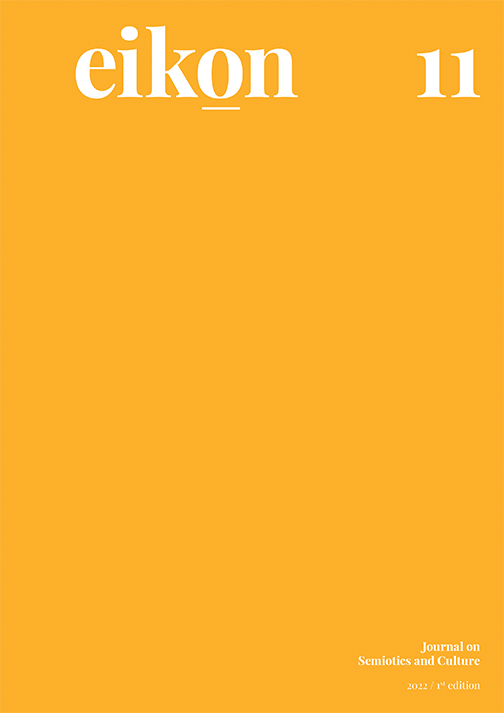A semiótica no greenwashing: uma breve reflexão
Palavras-chave:
Greenwashing, semiótica, comunicação, sustentabilidade, ecobranqueamentoResumo
A comunicação em torno das temáticas da responsabilidade social empresarial têm sido uma constante há já vários anos. Recentemente, o foco na comunicação da sustentabilidade tornou-se fundamental para a continuidade da reputação das empresas, fazendo com que as últimas décadas tenham ficado marcadas por um crescimento de rótulos, mensagens e informações que podem ser caracterizadas como práticas de ecobranqueamento – greenwashing. O presente artigo visa uma reflexão sobre o papel que a semiótica desempenha também no greenwashing. Pretende-se analisar em que medida a apropriação da natureza anfibológica dos símbolos e dos signos, no domínio das alterações climáticas, podem afetar os significados e as perceções que as pessoas têm de produtos, serviços ou organizações.
Referências
Bowen, F. (2014). After Greenwashing: Symbolic Corporate Environmentalism and Society Frances Bowen. Cambridge University Press.
Branco, M. C., & Rodrigues, L. L. (2006). Corporate Social Responsibility and Resource-Based Perspectives. Journal of Business Ethics, 69(2), 111–132. https://doi.org/10.1007/s10551-006-9071-z
Caimotto, M. C., & Molino, A. (2011). Anglicisms in Italian as Alerts to Greenwashing: A Case Study. Critical Approaches to Discourse Analysis across Disciplines, 5 (1), 1–16.
Cambridge Dictionary. (n.d.). Greenwashing. In Cambridge Dictionary. https://dictionary.cambridge.org/pt/dicionario/ingles/greenwashing
Chappells, H., Medd, W., & Shove, E. (2011). Disruption and change: Drought and the inconspicuous dynamics of garden lives. Social & Cultural Geography, 12(7), 701–715. https://doi.org/10.1080/14649365.2011.609944
Comissão Europeia. (2022). Proposta de Diretiva do Parlamento Europeu e do Conselho que altera as Diretivas 2005/29/CE e 2011/83/UE (COM(2022) 143 final). https://eur-lex.europa.eu/resource.html?uri=cellar:ccf4e0b8-b0cc-11ec-83e1-01aa75ed71a1.0010.02/DOC_1&format=PDF
de Freitas Netto, S. V., Sobral, M. F. F., Ribeiro, A. R. B., & Soares, G. R. da L. (2020). Concepts and forms of greenwashing: A systematic review. Environmental Sciences Europe, 32(1), 19. https://doi.org/10.1186/s12302-020-0300-3
Delmas, M. A., & Burbano, V. C. (2011). The Drivers of Greenwashing. California Management Review, 54(1), 64–87. https://doi.org/10.1525/cmr.2011.54.1.64
Eco, U. (2017). O signo. Editorial Presença.
European Comission. (2021). Adesão do público à luta contra as alterações climáticas. European Comission. https://ec.europa.eu/clima/citizens/citizen-support-climate-action_pt
Ferguson, R. J., Schattke, K., & Paulin, M. (2021). Persuasions by Corporate and Activist NGO Strategic Website Communications: Impacts on Perceptions of Sustainability Messages and Greenwashing. Humanistic Management Journal, 6(1), 117–131. https://doi.org/10.1007/s41463-019-00072-8
Fidalgo, A. (1998). Semiótica: A Lógica da Comunicação. http://www.bocc.ubi.pt/pag/fidalgo-antonio-logica-comunicacao.pdf
Gonçalves, G. (2010). Introdução à Teoria das Relações Públicas. Porto Editora.
IPCC. (2021). Summary for Policymakers. In Climate Change 2021: The Physical Science Basis. Contribution of Working Group I to the Sixth Assessment Report of the Intergovernmental Panel on Climate Change ([Masson-Delmotte, V., P. Zhai, A. Pirani, S.L. Connors, C. Péan, S. Berger, N. Caud, Y. Chen, L. Goldfarb, M.I. Gomis, M. Huang, K. Leitzell, E. Lonnoy, J.B.R. Matthews, T.K. Maycock, T. Waterfield, O. Yelekçi, R. Yu, and B. Zhou (eds.)]). in press.
Kassinis, G., & Panayiotou, A. (2018). Visuality as Greenwashing: The Case of BP and Deepwater Horizon. Organization & Environment, 31(1), 25–47. https://doi.org/10.1177/1086026616687014
Kopnina, H. (2019). Green-washing or best case practices? Using circular economy and Cradle to Cradle case studies in business education. Journal of Cleaner Production. http://dx.doi.org/10.1016/j.jclepro.2019.02.005
Kotler, P., Kartajaya, H., & Setiawan, I. (2021). Marketing 4.0. Actual.
Lyon, T. P., & Montgomery, A. W. (2015). The Means and End of Greenwash. Organization & Environment, 28(2), 223–249. https://doi.org/10.1177/1086026615575332
Maier, C. D. (2011). Communicating business greening and greenwashing in global media: A multimodal discourse analysis of CNN’s greenwashing video. International Communication Gazette, 73(1–2), 165–177. https://doi.org/10.1177/1748048510386747
Mühlhäusler, P., & Peace, A. (2006). Environmental Discourses. Annual Review of Anthropology, 35(1), 457–479. https://doi.org/10.1146/annurev.anthro.35.081705.123203
Ribeiro, S., & Soromenho-Marques, V. (2022). The Techno-Optimists of Climate Change: Science Communication or Technowashing? Societies, 12(2), 64. https://doi.org/10.3390/soc12020064
Shove, E., & Pantzar, M. (2005). Consumers, Producers and Practices: Understanding the invention and reinvention of Nordic walking. Journal of Consumer Culture, 5(1), 43–64. https://doi.org/10.1177/1469540505049846
Siano, A., Vollero, A., Conte, F., & Amabile, S. (2017). “More than words”: Expanding the taxonomy of greenwashing after the Volkswagen scandal. Journal of Business Research, 71, 27–37. https://doi.org/10.1016/j.jbusres.2016.11.002
Warde, A. (2005). Consumption and Theories of Practice. Journal of Consumer Culture, 5(2), 131–153. https://doi.org/10.1177/1469540505053090
Downloads
Publicado
Edição
Secção
Licença
Autores que publicam nesta revista concordam com os seguintes termos:
- Autores conservam os direitos de autor e concedem à revista o direito de primeira publicação, com o trabalho simultaneamente licenciado sob a Licença Creative Commons Attribution que permite a partilha do trabalho com reconhecimento da autoria e publicação inicial nesta revista.
- Autores têm autorização para assumir contratos adicionais separadamente, para distribuição não-exclusiva da versão do trabalho publicada nesta revista (ex.: publicar em repositório institucional ou como capítulo de livro), com reconhecimento de autoria e publicação inicial nesta revista.
- Autores têm permissão e são estimulados a publicar e distribuir o seu trabalho online (ex.: em repositórios institucionais ou na sua página pessoal) a qualquer ponto antes ou durante o processo editorial, já que isso pode gerar alterações produtivas, bem como aumentar o impacto e a citação do trabalho publicado (Veja O Efeito do Acesso Livre).

